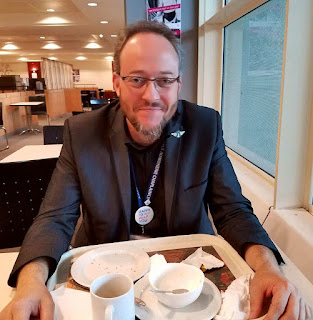We are in 1940, in Germany, in a camp of French prisoners. Among
them, some priests asked Jean-Paul Sartre, who had been a prisoner with them for a
few months, to write down a short meditation for Christmas’ Eve. Sartre, the
atheist writer, accepted. And he offered to his companions those beautiful
lines.
“You have the right to demand and
see the Manger. Here it is. Here is the Virgin, here is Joseph, and here is the
Child Jesus. The artist poured all his love in this drawing, maybe you will think
he is naïve, but listen. You only need to close your eyes and listen to me, and
I will share how I see them from inside me.
The Virgin is pale as she looks
at the child. Worried wonderment is what should be painted on her face, a wonderment
that only appeared once on a human face, because Christ is her child, the flesh
of her flesh and the fruit of her womb. She carried him for nine months. She
gave him her breast and her milk will become the blood of God. She holds him,
and she says, “my baby”!
But sometimes she is taken aback,
and she thinks “God is here” and she feels a religious fear growing for this
mute God, for this child, because all mothers have been taken aback in such
moments, by this fragment of their flesh that is their child, and they feel
exiled as they face this new life that has been done with their lives and that
is inhabited with foreign thoughts.
But none has been more cruelly
and more quickly teared away than from this mother because He is God and He exceeds
on all sides what she can imagine. And that’s a heavy trial for a mother to
fear herself and her human condition in presence of her son. But I think there
are other quick and smooth times where she feels that Christ is her son, her
own baby, and he is God. She looks at him and she thinks “This God is my child!
This divine flesh is my flesh, He was made from me, He has my eyes and his
mouth is shaped like mine. He looks like me, He is God and He looks like me.”
And no woman ever had God for
herself. A God very small that you can hold in your arms, a God you can cover
with kisses, a warm God who smiles and breath, a God one can touch and who
lives, and I would paint Marie in those moments if I was an artist, and I would
try to convey the tender audacity and the shyness in her as she moves her finger
to touch the soft small skin of this child God, as she feels his warm weight on
her lap and as he smiles to her. So that’s for Jesus and for the Virgin Marie.
And Joseph. Joseph? I would not
paint him. I would show a shadow in the back of the barn and bright eyes,
because I don’t know what to say about Joseph. And Joseph himself is not sure
what to say. He adores and is happy to adore. He feels in exile, a little. I
think he grieves without admitting it. He grieves because he can see how much
the woman he loves looks like God. How much she is already on God’s side.
Because God came into the intimacy of this family. Joseph and Marie are
separated forever by this fire of clarity, and all his life, I imagine, Joseph will
be about learning to accept. Joseph himself does not know what to say about
himself : he adores and is happy to adore.”
(From « Baronia or the Son
of Thunder” a play written by Sartre about his time as a prisoner of war. This
text is also included in « the Writings of Sartres” by M. Contat and M.
Rybalka, NRF 1970)































